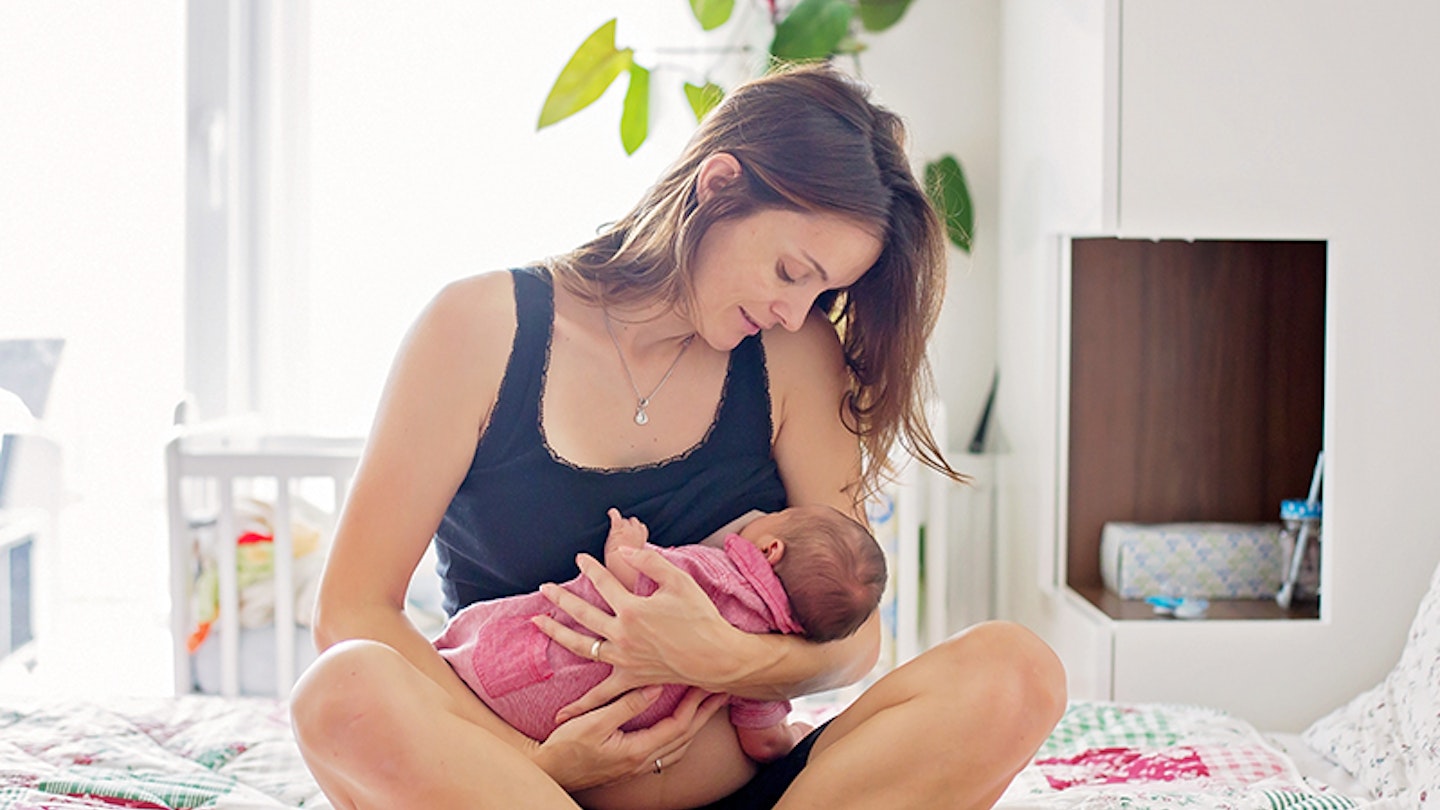Breastfeeding can be really tough, but with our beginner's guide, you can begin to feel both informed and confident enough to feed your baby.
It can take a while for both you and your baby to get the hang of it and that's completely normal.
We've put together a beginner's breastfeeding guide to help you navigate this, sometimes tricky, territory.
Firstly, should you breastfeed your baby?
The NHS recommendsbreastfeeding your baby exclusively for their first six months. After that, you can start feeding your baby solid foods but it is important to continue breasfeeding alongside weaning as most of their nutrition will still come from your milk.
You can continue breastfeeding for as long as it is working well for you and your baby. Most mothers will stop breastfeeding by the time their toddler has turned two but others will happily continue until their child is two - it is completely up to you.
One major point to note is that breastfeeding is a skill you and your baby both need to learn and it isn't something you will necessarily master straight away. Even if you have breastfed successfully before, it may still take a while to get the hang of it with a new baby.
Putting pressure on yourself to get it right first time and every time can make you feel bad about breastfeeding. This can take away from the bonding time you could be having with your baby.
Go easy on yourself and always ask for help if you need it - getting support can make a major difference and help you troubleshoot any initial problems before they become major issues. And don't feel guilty if you find breastfeeding isn't suitable for you, there is absolutely no shame in bottle feeding.
WATCH: A midwife shows how to breastfeed a newborn baby
What are the benefits for my baby?
Is breastfeeding good for me and my baby? Here are 10 brilliant benefits of breastfeeding:
Breastfeeding benefits
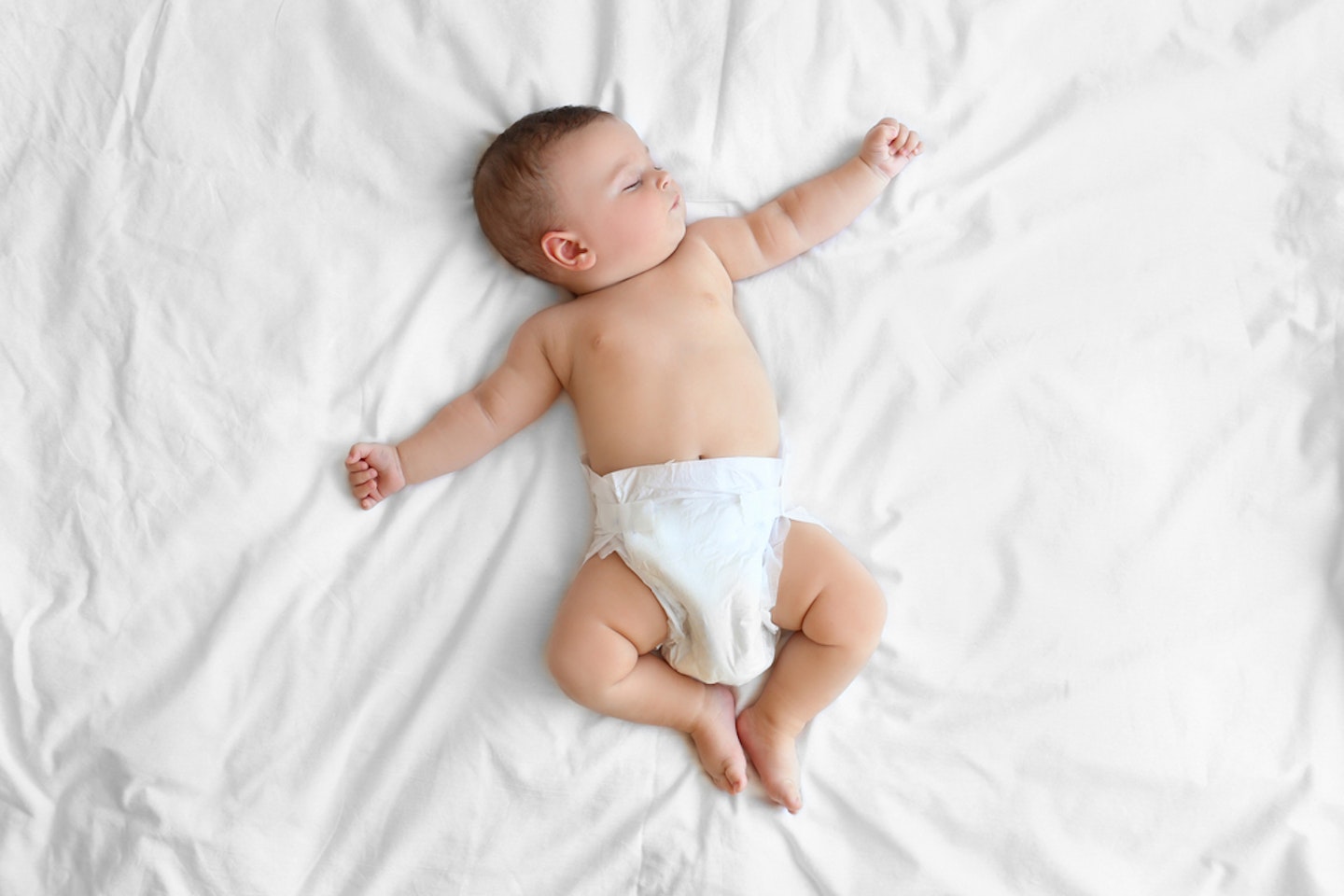 1 of 10
1 of 101) It may reduce your baby's risk of sudden infant death syndrome (SIDS), also known as cot death
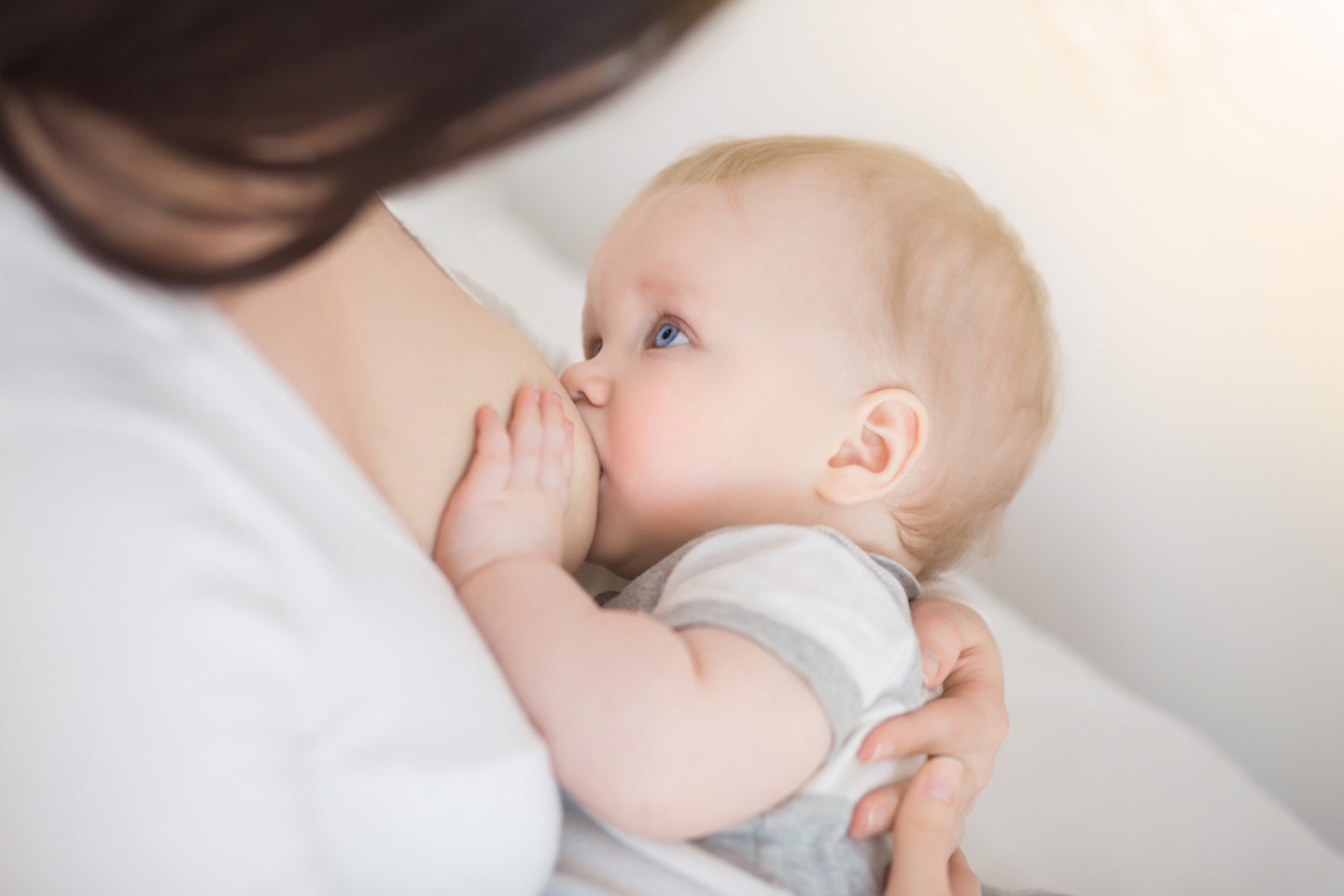 2 of 10
2 of 102) Breastfeeding can fight inflammation on your baby's digestive system by planting good (probiotic) bacteria
 3 of 10
3 of 103) It can help you bond with your baby and help prevent postnatal depression
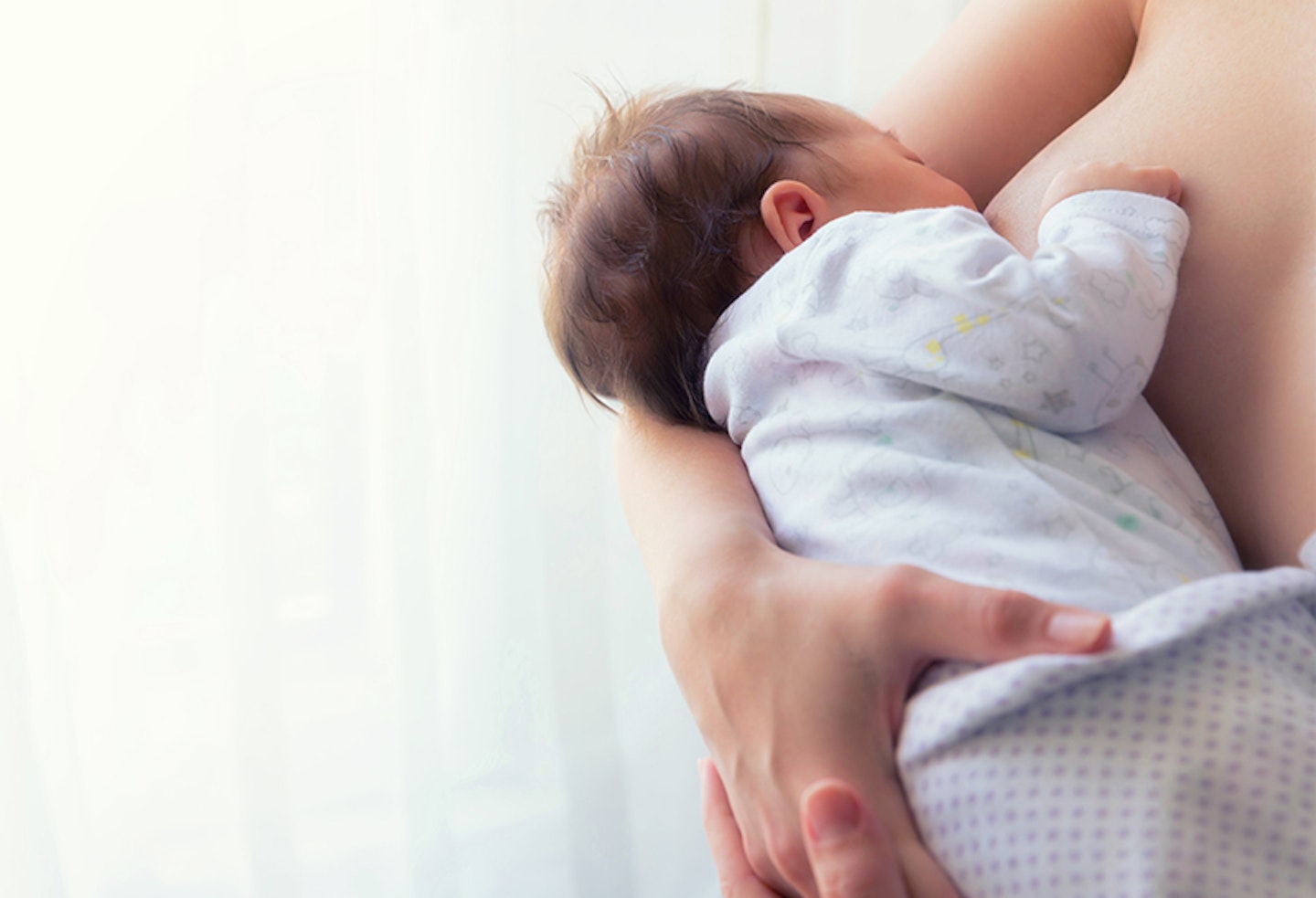 4 of 10
4 of 104) It can help prevent them becoming a fussy eater. The flavour of breastmilk can change depending on what you've eaten, meaning it can help prepare your little one for different tastes
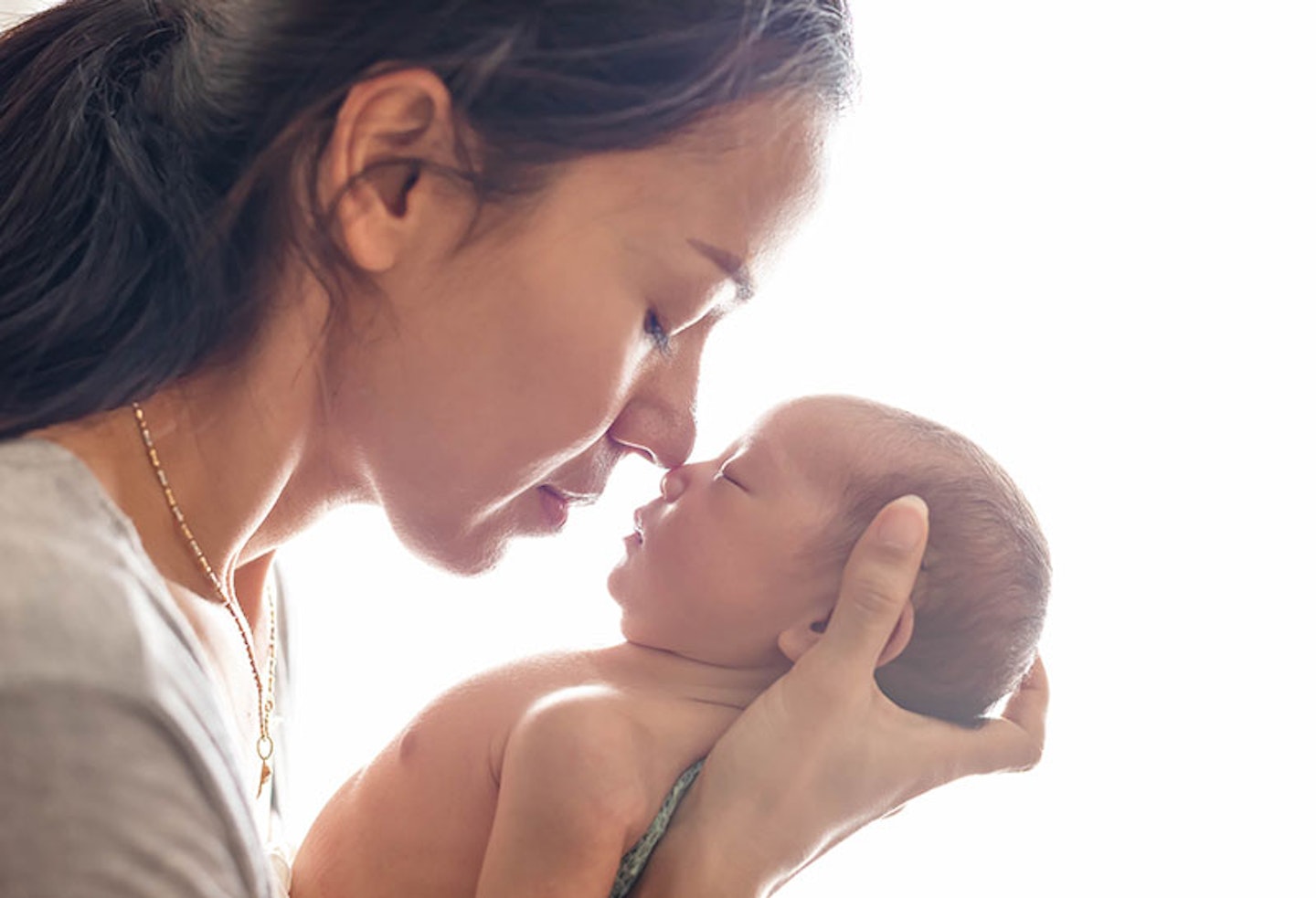 5 of 10
5 of 105) Breastfeeding for at least six months can protect babies against childhood leukaemia
 6 of 10
6 of 106) Breastfed babies may be less likely to become obese or develop diabetes as adults.
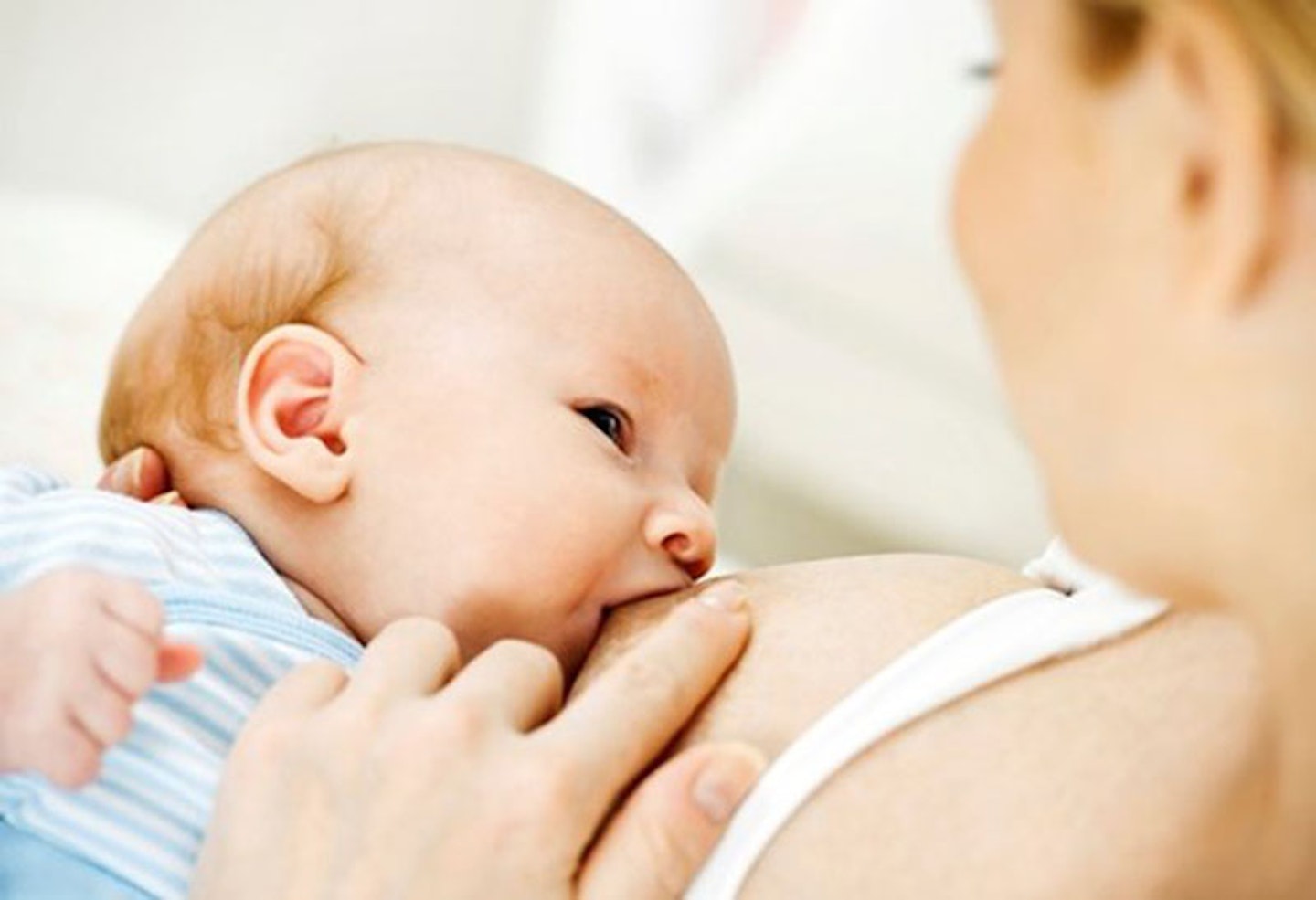 7 of 10
7 of 107) Breastmilk can help your baby to recover from illness more quickly
Breastfeeding guide
 8 of 10
8 of 108) Breastmilk contains antibodies that help to protect your baby fight infection, such as tummy bugs (gastroenteritis), colds and ear infections
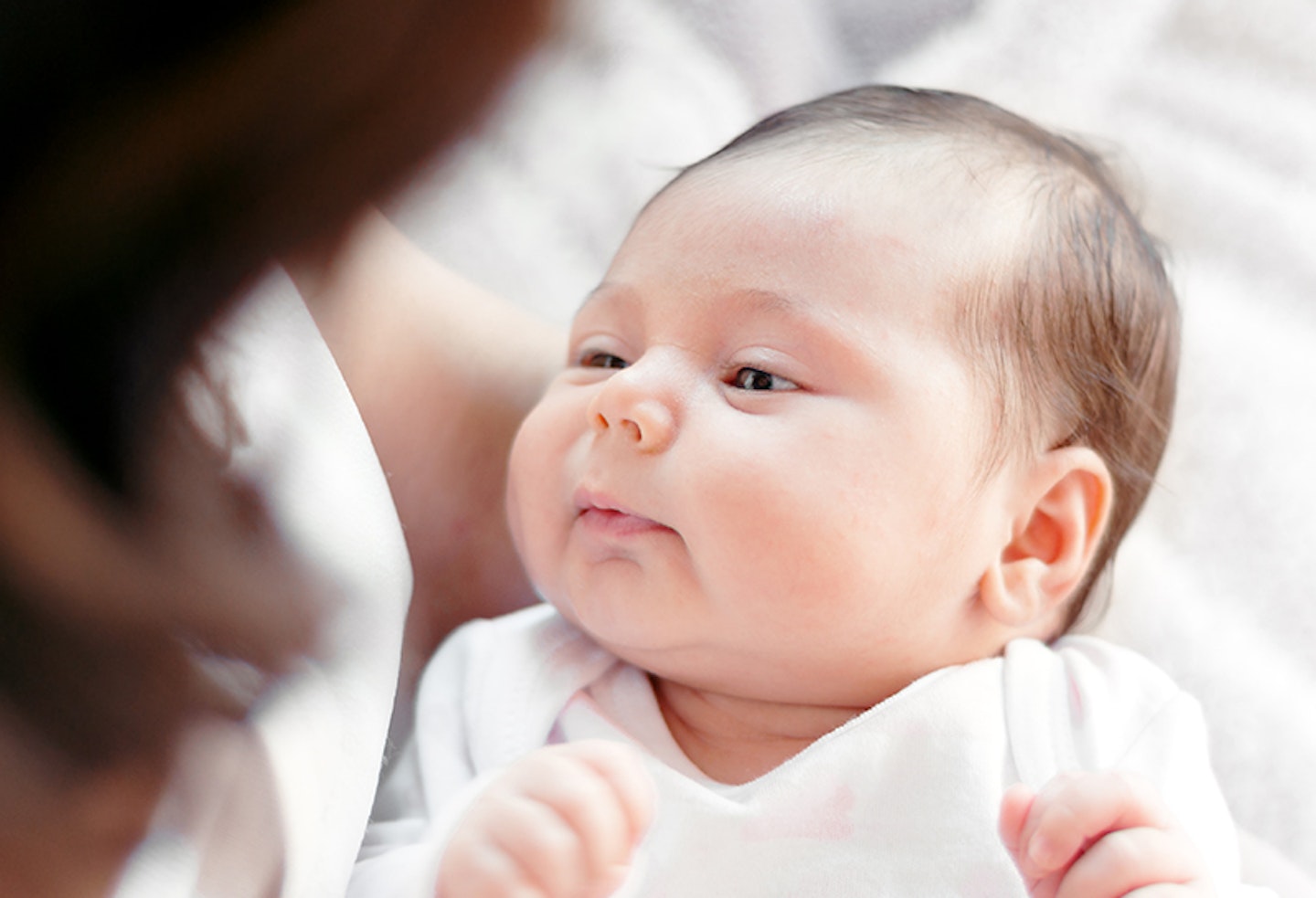 9 of 10
9 of 109) Breastmilk contains long-chain polyunsaturated fatty acids. They help your baby’s all-important brain to develop
 10 of 10
10 of 1010) Breastfeeding reduces the risk of your baby wheezing and developing severe eczema
Does breastfeeding hurt?
Breastfeeding shouldn't hurt when done correctly, but it can feel a little strange at first and some new mums can find the sensation uncomfortable during the first few days. If feeding is actually painful, this can be a sign that something is wrong so speak to your midwife, health visitor or a breastfeeding support worker.
The good news is that there are lots of things you can do to alleviate discomfort.
Most issues are caused by uncomfortable placement and positioning, so it's worth experimenting to find the most comfortable way of holding your baby for you. If you're finding it difficult to get your baby into a good position for feeding, seek advice from an expert.
The letdown reflex (when your breasts release milk) can be an unpleasant sensation at first, but it usually settles down once feeding is properly established. For some women, letdown can feel like an intense tingling like pins and needles and it may even be a little bit painful.
Others will experience a warm feeling in their breasts or a sense of fullness or they might notice they suddenly feel extremely thirsty. Not all women notice the letdown reflex so if you don't feel anything at all when your breasts release milk, don't worry as that is completely normal too.
If you haven't fed your baby for a while and you haven't been able to express, your breasts can become engorged. This can also happen if you are producing too much milk and your baby can't keep up with your supply.
If your breasts become engorged, they might feel hard, tight, swollen and painful and your nipples may flatten. Your breasts may also feel hot and lumpy and they may even throb.
How to avoid engorgement
Engorgement usually only lasts between 24 and 48 hours but it can be uncomfortable and you may experience difficulty getting your baby to latch on to your nipples as they will be flatter than usual. If this happens, express a little milk first either by hand or with a pump to soften your breast so it will be easier to get your baby latched on properly.
The best way to avoid engorgement is to feed your baby as regularly as possible and express your milk if you are away from your baby. Aim to feed a minimum of eight times in 24 hours and allow your baby to completely drain your breast at each feed.
Alternate which breast you start your baby on at each feed so both breasts drain evenly - some women find wearing a bracelet or bobble on their wrist helps them remember which side to begin with next time.
When your breasts are engorged, try a warm shower or cover them with a warm and wet cloth for a couple of minutes to soothe them and help the milk start flowing. You may also find tucking cabbage leaves into your bra helps bring the swelling down and soothe your sore breasts.
If you do become engorged, don't ignore it as it can lead to blocked ducts which can make feeding more difficult. It some cases, it can even develop into mastitis.
What is mastitis?
Mastitis is an infection caused by blocked milk ducts, which can make your breasts become red, painful and swollen and you may develop flu-like symptoms and a fever. Check your symptoms of mastitis here and see a doctor if you're concerned.
If you do develop mastitis, you may be prescribed antibiotics to clear up the infection. It is safe to continue breastfeeding and regular feeding, along with applying warm, moist compresses and massaging your breasts in a gentle, circular motion, can help.
Another condition associated with breastfeeding which may require a GP visit is thrush. Thrush can be passed between your baby and your nipples and if it enters your milk ducts, it can cause a lot of pain after you've finished breastfeeding.
Caring for your nipples
Many women have very sensitive nipples and nipple pain is a common complaint among breastfeeding mums. Some women get sore, cracked or even bleeding nipples in the early days of breastfeeding, often due to poor attachment or positioning.
If your baby only sucks on your nipple rather than the whole areola - the dark coloured skin surrounding the nipple - this can lead to chafing and soreness.
Have a look at our guide to soothing sore nipplesfor some easy household treatments like Vaseline, Manuka honey or saltwater baths. You can also buy specialist nipple creams as well as tools that can help heal your nipples like silver nursing cups.
What can I eat and drink while breastfeeding?
When you're breastfeeding, taking care of your health is vital for both you and your baby so you can keep your milk supply up and make sure your baby is getting all the nutrients they need.
Breastfeeding can make you hungrier and more tired than normal, so try to address this with a healthy, balanced diet including plenty of fruit and vegetables, protein, fibre, dairy and fluids.
If you're stuck for inspiration, read our list of [drinks and snacks to help you keep your energy up while breastfeeding.]{href='https://www.motherandbaby.com/lifestyle-and-celebs/food/healthy-eating-tips-and-advice/your-top-20-dishes-to-eat-when-breastfeeding' }
Skimmed milk and water are the best options for keeping hydrated.
Caffeine is not recommended for breastfeeding mums above limits of around 200mg a day, as it can reach your baby through your milk and keep him or her awake. Alcohol in small amounts of one or two units a week is generally fine.
Can I take medication while breastfeeding?
Cold and flu medications aren't recommended for breastfeeding mums because they can make their way to your baby through your milk.
With any new medication, you should always seek guidance from your GP and let them know you're breastfeeding before you take anything.
Do breastfeeding babies need water?
Because breast milk is 88% water, babies don't need any water while breastfeeding, although they may need more breast milk in hot weather.
Do breastfeeding babies need to be burped?
Babies who are breastfed don't need to be burped as often as bottle-fed babies, because they swallow less air when they're feeding. However, burping your baby is still a good idea as they may still swallow small air bubbles which can become trapped in their stomach, causing pain.
If your baby becomes restless and fidgety during a feed, you may find it helpful to take a short break to wind them. You don't need to spend ages burping your baby - just a couple of minutes should be enough. Rub or pat your baby's back gently, making sure their head and neck is supported.
Do breastfeeding babies get colic?
It's a myth that breastfeeding prevents colic, as colic is no more or less common in breastfed babies than babies who don't breastfeed.
Will it change my breasts?
The flow of milk into your breasts during breastfeeding can lead to a slight stretching that might cause your breasts to look and feel different.
Other than that, it's impossible to say how your breasts might change in appearance after breastfeeding because everyone's experience is different.
Any changes to the appearance of your breasts are far more likely to be caused by pregnancy itself than by breastfeeding.
Can I get pregnant whilst breastfeeding?
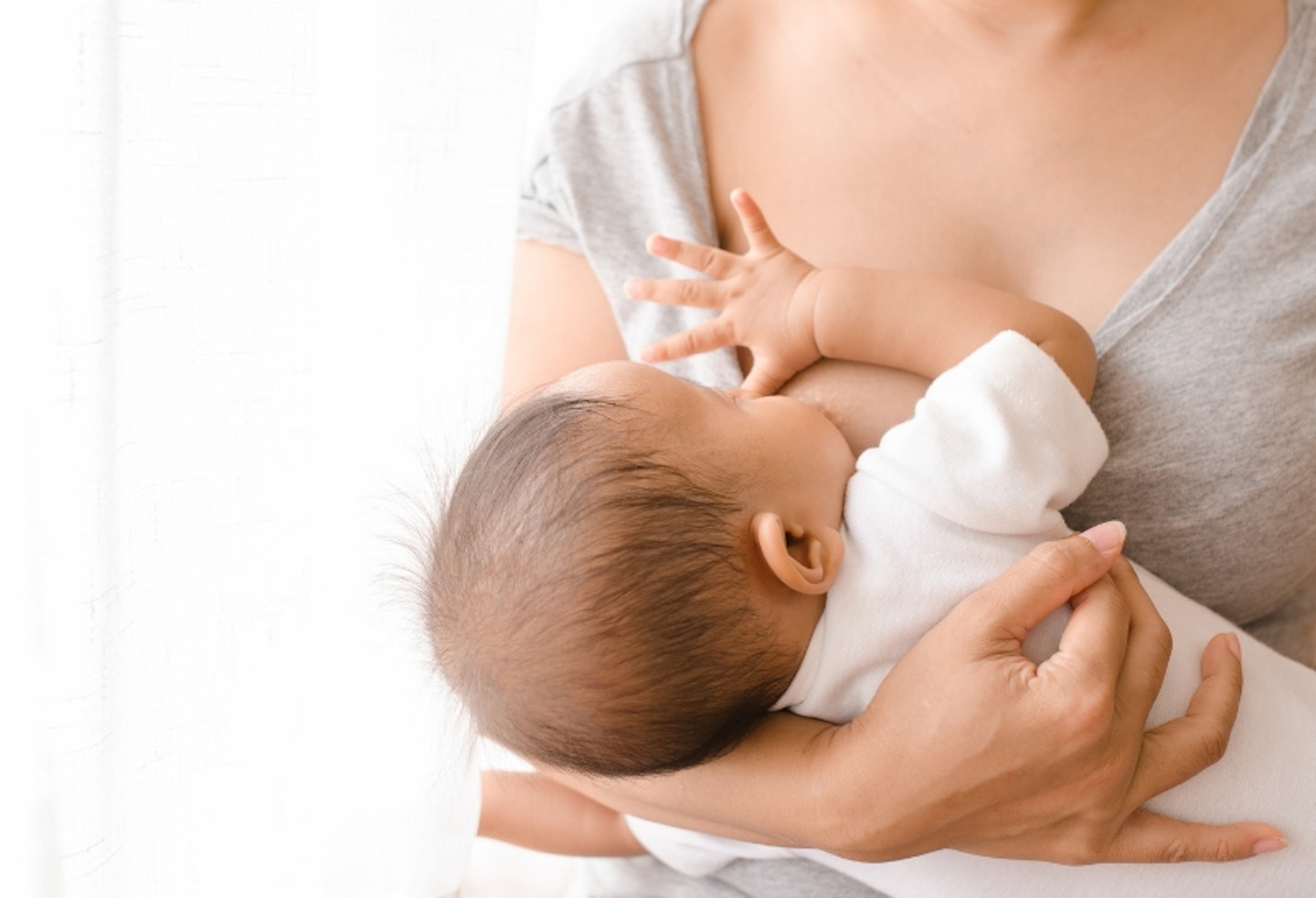
Yes! It all depends on how often you breastfeed or 'booble' your baby. "Anything that we do which reduces the frequency and manner in which our baby naturally boobles can affect our hormone levels and, potentially, cause us to ovulate." says parenting expert Rachel Fitz-Desorgher. Check out her full guide on fertility whilst breastfeeding, if you're still unsure.
Does it have any side effects?
The hormones released during breastfeeding can have all kinds of side effects, which differ from woman to woman, including drowsiness, acne, headaches, nausea, weight loss and heightened emotions both good and bad.
It's important to recognise that if you don't feel uplifted by breastfeeding, this is probably the result of an entirely natural release of hormones which helps let down the milk and is nothing to do with your abilities as a mother. If you're concerned about your mood during breastfeeding, you should always see your doctor.
Taking vitamins can help with both the physical and emotional stress that breastfeeding can put on your body. There are essential breastfeeding vitamins that contain everything you need to stay as healthy as possible during your breastfeeding months, like these Pregnacare supplements(£10.45, amazon.co.uk).
Can I breastfeed in public?
Breastfeeding in publicmay feel strange at first, but it is completely legal to breastfeed anywhere in the UK and no one should ask you to stop or make you feel uncomfortable for doing it. It is also socially acceptable to the vast majority of people and you'll probably find in reality that most people don't even notice you're doing it.
Practicality is key, so make sure you wear a suitable bra and nursing topto be able to feed easily and comfortably. You can buy a special breastfeeding cover or shawl if you feel more relaxed being covered when you feed, or you can even use those versatlie muslins.
Bring someone with you if you feel strange feeding your baby in public on your own. It will become easier the more you do it.
What breastfeeding supplies do I need?
Getting the right kit in advance can make your life much easier.
There are many things you can buy to help with breastfeeding, and it's likely you'll consider them essentials once you've used them for a while.
The first is a breast pump. This is invaluable whenever you don't have your baby with you because you'll need to remove all that milk somehow for your own comfort.
Try this Tommee Tippee Breastfeeding Starter Kit (£34.99, amazon.co.uk), which contains a manual pump, steriliser box, bottles, breast pads and storage lids.
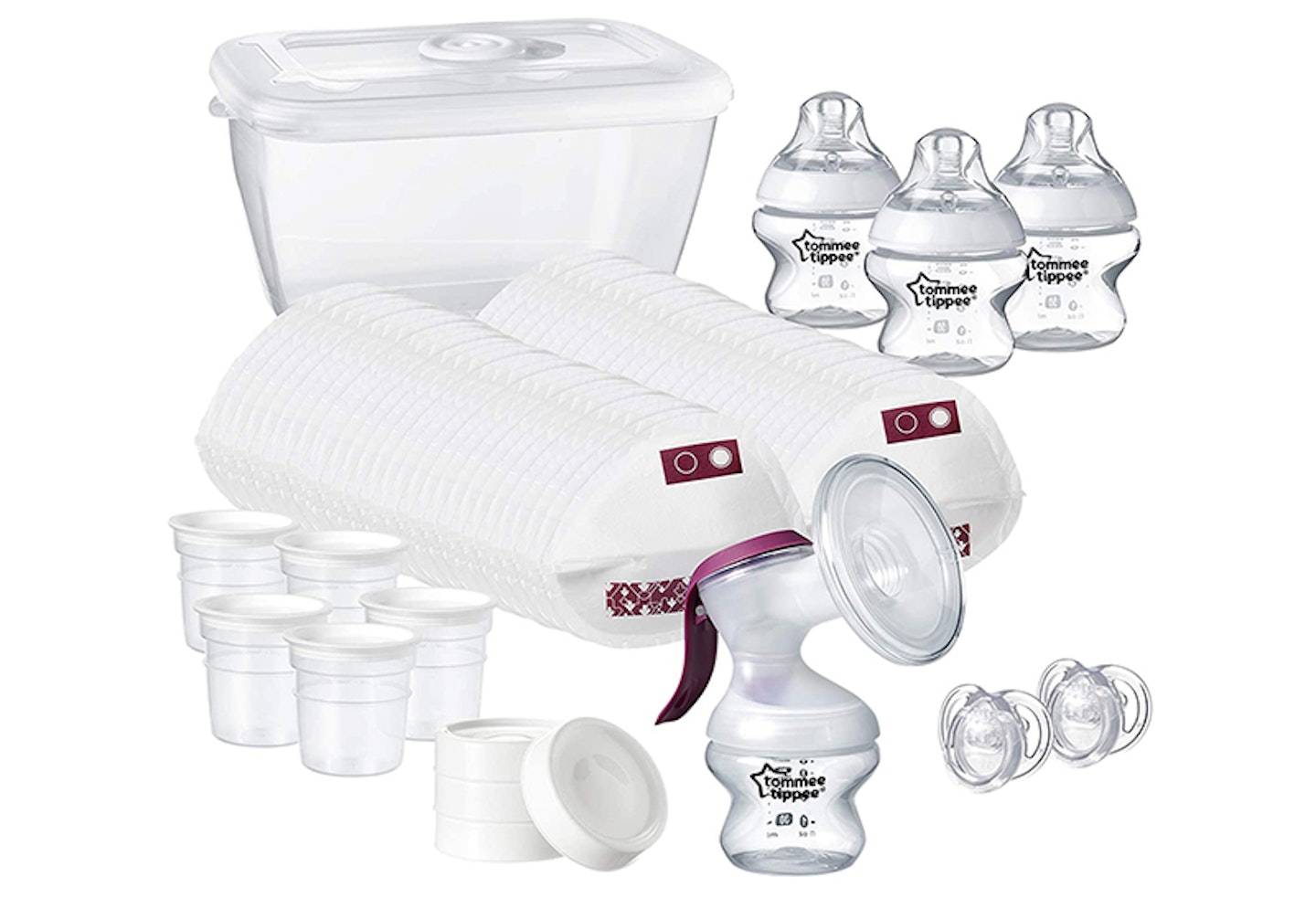
A nursing pillow like this one from Cuddles Collection can help with positioning for a comfortable feed.
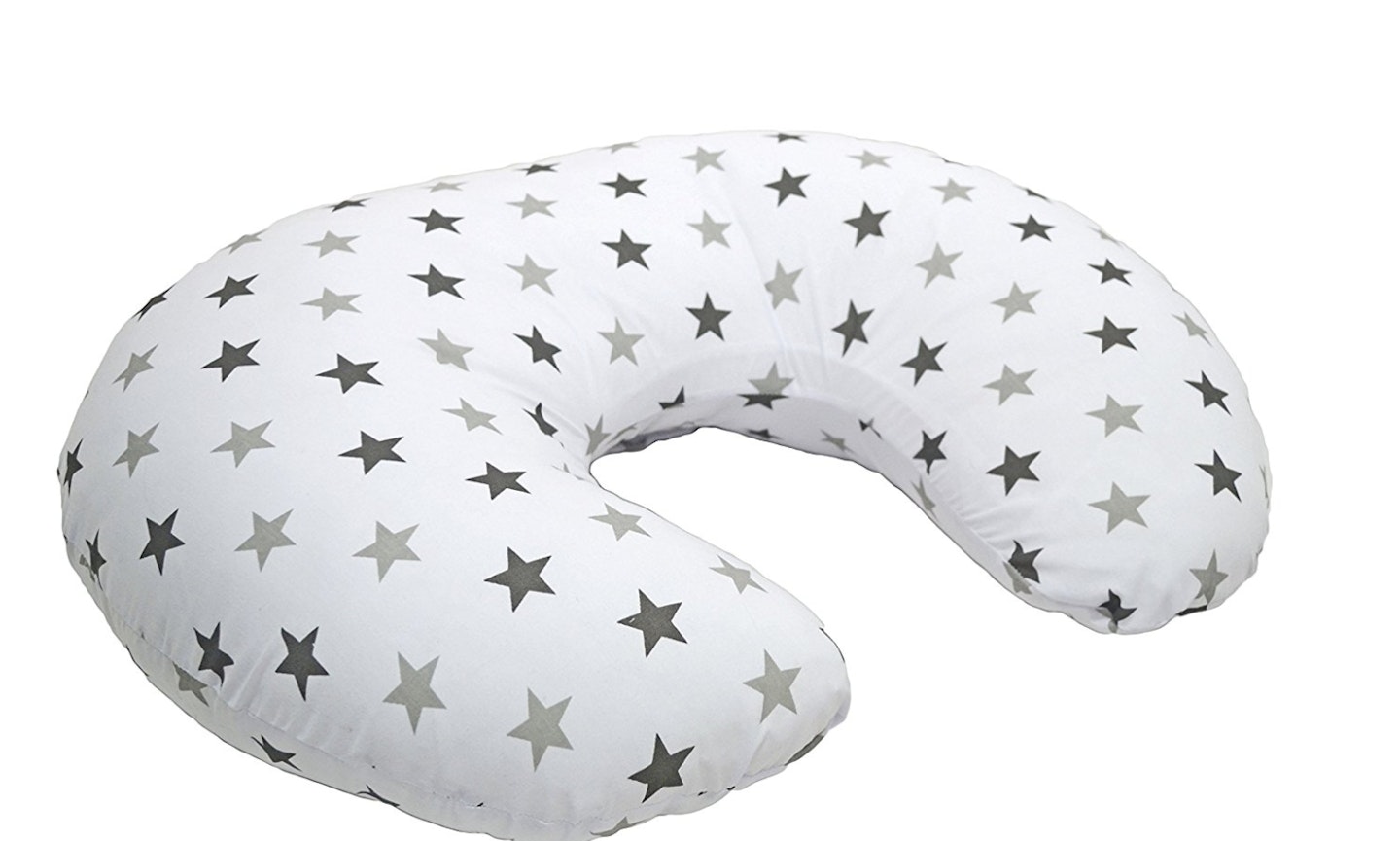
A sling can also help you to breastfeed standing up. We like this Hana baby wrap (£29, amazon.co.uk) as it is supersoft and comfortable and as it is made from bamboo, which has natural thermo-regulating properties, you won't feel too hot on a warm day.
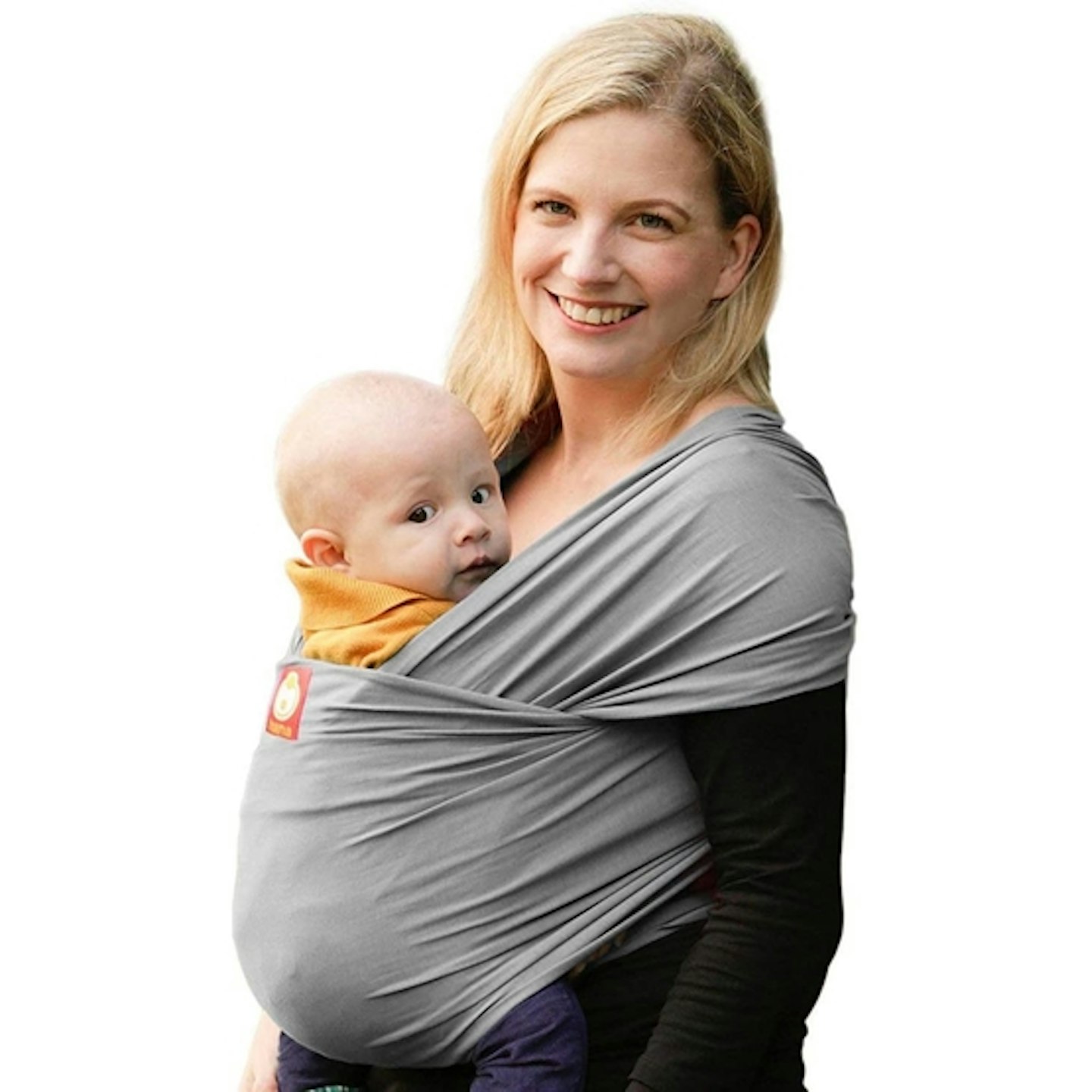
Breast pads or nursing pads are another accessory that most breastfeeding mums count as an essential. They soak up nipple leaks – helping to avoid embarrassing situations – and also help prevent chapped and sore nipples. Try these Medela Disposable Nursing Pads . Or, for a more eco-friendly option, how about these Close Parent Reusable Breast pads.
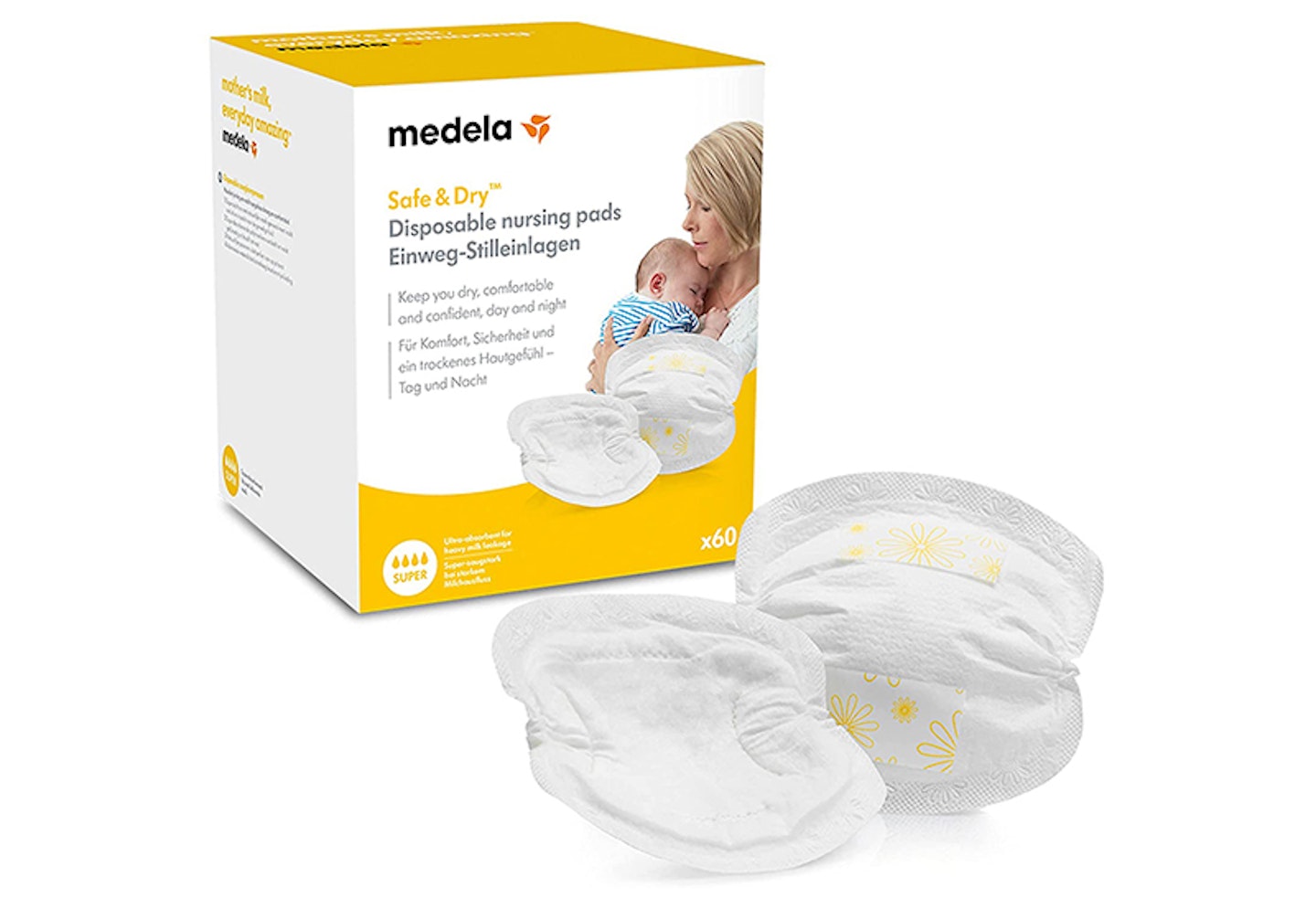
The last thing you should be worrying about when you’re feeding the baby is your clothes. From crossover designs to cleverly positioned zips and poppers, there are loads of different nursing tops out there that take the fuss and stress out of feeding.
How long should I breastfeed for?
As with so much of breastfeeding guidance, weaning off breastmilk is a personal process and can change according to you or your baby's needs.
Around six months is a good time for your baby to start trying solid foods. However, it's important to do this only when they've had a little milk. It's a trying process for them, and doing it when they're extremely hungry is likely to lead to frustration for both of you.
Weaning is usually done by dropping one feed a day from your baby's normal routine. You might want to start by thinking about which feed your baby enjoys most, and make sure you keep that feed in your routine, dropping a different one in favour of trying some solids.
You may need to express milk for your own comfort to compensate for the reduction in feeds. Keep an eye on your own health at the same time as looking after your baby's.
Many mothers find that they can let their baby guide the process from here on in, adopting a "don't offer, don't refuse" approach. This allows their baby to ask for milk at any time, but with the baby (rather than the mother) guiding the feeds.
Some mothers find that they wish they had carried on breastfeeding for longer than they did, so when you do decide to try weaning your baby make sure it's for you and your child, and not because you feel any pressure to stick to someone else's timetable.
Breastfeeding help and support
Breastfeeding your baby should be an enjoyable, bonding experience for both of you. If you're having difficulties at any time, you don't need to suffer in silence.
There are plenty of new mums out there who have had the same issues you may be experiencing, and there's also an abundance of help, so speak to your GP if you think something is going wrong and you will be completely supported.
Breastfeeding groups and classes are also widely available, and can be an excellent social outlet for new mums as well as a helpful support network for breastfeeding issues.
In addition to this overview, we've created a step-by-step guide to breastfeeding, shared breastfeeding tips and addressed some common breastfeeding problems to help give you the best start on your breastfeeding journey.
Read more popular articles
15 fascinating facts about breastfeeding that will blow your mind!
The best free breastfeeding apps that every new mum needs in their life
